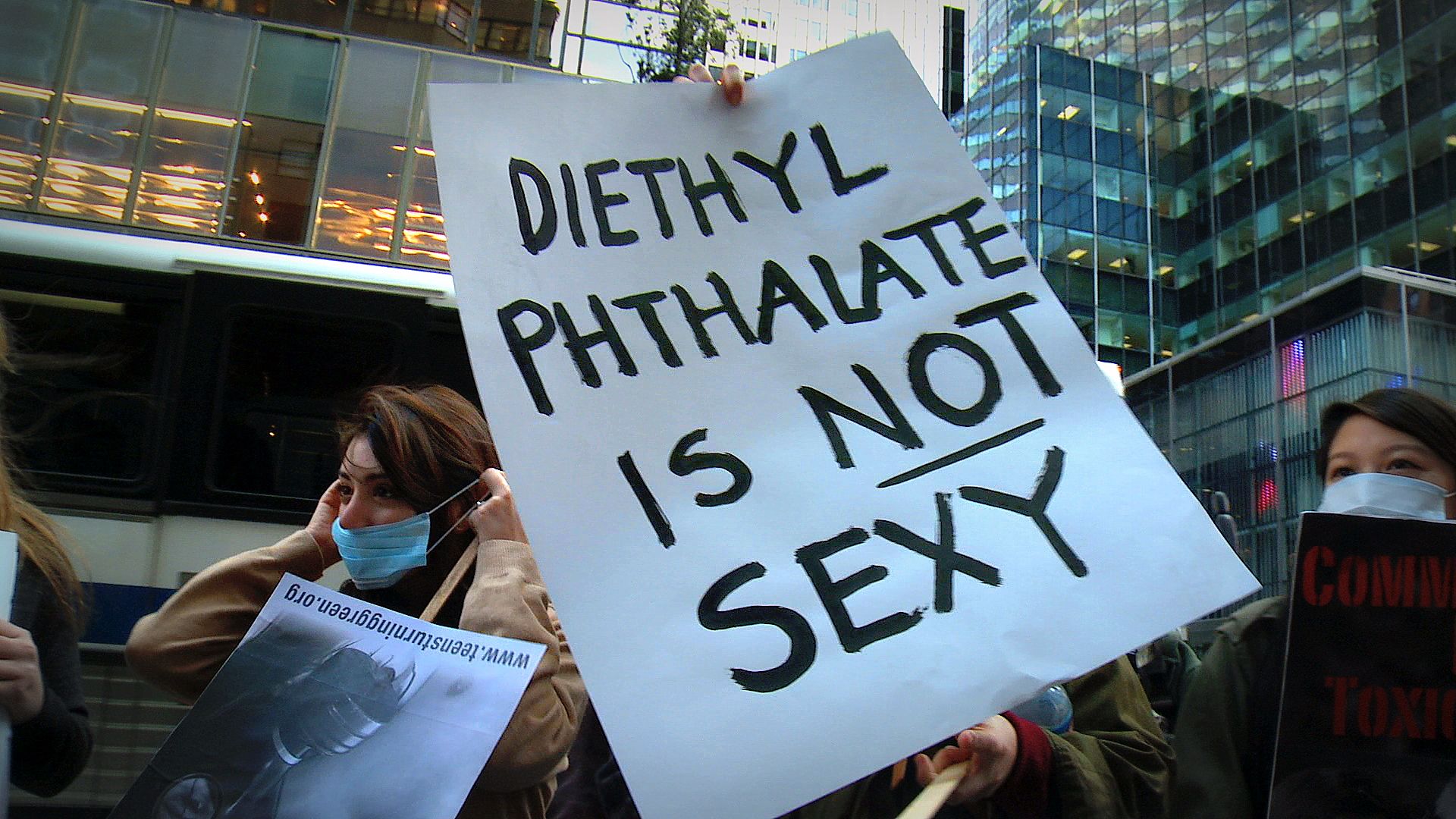
The next time you buy a stick of deodorant or a bottle of dish soap, consider this: The Environmental Protection Agency (EPA) has tested and published data on only approximately 200 of the roughly 83,000 chemicals legally used to make products in the U.S., according to a California Senate review from 2010.
Meanwhile, food manufacturers can put thousands of additives into their products without approval from the Food and Drug Administration (FDA) because of a loophole in a decades-old food additive law, the Center for Public Integrity reported this week.
What does this mean? According to the producers of a new documentary, it means we play the role of test subjects in a vast human experiment.
The Human Experiment, released today in select theaters, as well as on iTunes and other video-streaming platforms, tells the story of some of the many chemicals we come in contact with every day, and the lengths industry interests have gone to keep their products on the market even after chemicals within them were determined to be harmful to human health.
Over and over, health effects come to light. And over and over, the film points out, America's regulations, which in most cases presume chemicals to be safe for use until proven otherwise, do not change. The American chemical regulatory framework is broken, the documentary argues, and the consequences are dire.
"It is very troubling to see so many issues that you would think we should learn from basically being ignored," Dr. David Rosner of Columbia University's Center for the History and Ethics of Public Health says into the camera. "Certainly asbestos, tobacco, lead, vinyl chloride [PVC]—you could go through a few classic examples of real mistakes, of major mistakes, in which we allowed these industries to get away with murder."
The film, narrated by Sean Penn, follows the lives of environmental activists lobbying lawmakers to change chemical laws. Carrying the plot of the documentary are an infertile environmental health activist with polycystic ovary syndrome, a woman who has a brother with autism, and a housecleaner who advocates for the use of nontoxic cleaning products after contracting a painful skin condition. The rest is narrated by Penn and dotted with statistics that draw connections in the viewer's mind between disease and the rise of weakly regulated everyday chemicals.
For example, in 1999, one in 500 kids had autism, according to the film. Today, that number is one in every 88. While we don't know what causes autism, studies have found autism risk to correlate in some cases to environmental factors. For example, a study last year found that autism risk is much higher for children of pregnant women living near fields where agricultural pesticides are sprayed.
"We can't fully account for all the increase by looking in changes of definition, or looking at changes in practice, looking at age at diagnosis. Accounting for all those things, there is still a big part of the rise that we can't account for at this point in time," Dr. Irva Hertz-Picciotto of the MIND Institute at the University of California, Davis, where she studies neurodevelopmental disorders, says in the film.
Could the precipitous rise of chemical use in the U.S. have something to do with soaring autism rates? Could it have something to do with why the young, healthy woman in the film is unable to get pregnant?
It depends how you look at it. For example, bisphenol A, the ubiquitous plastic additive known as BPA, is an endocrine disruptor that in animal studies has been linked to numerous health effects, including infertility. The list of such correlations found between everyday substances and various disorders is long, but as of yet, because of scientific uncertainty, there are few if any cases where blame can be unequivocally placed on a particular chemical. That leaves The Human Experiment to rely on the common sense of viewers, helped along by the cautious but suggestive finger-pointing of numerous experts, to draw their own conclusions.
Uncommon Knowledge
Newsweek is committed to challenging conventional wisdom and finding connections in the search for common ground.
Newsweek is committed to challenging conventional wisdom and finding connections in the search for common ground.
About the writer
Zoë is a senior writer at Newsweek. She covers science, the environment, and human health. She has written for a ... Read more
To read how Newsweek uses AI as a newsroom tool, Click here.








